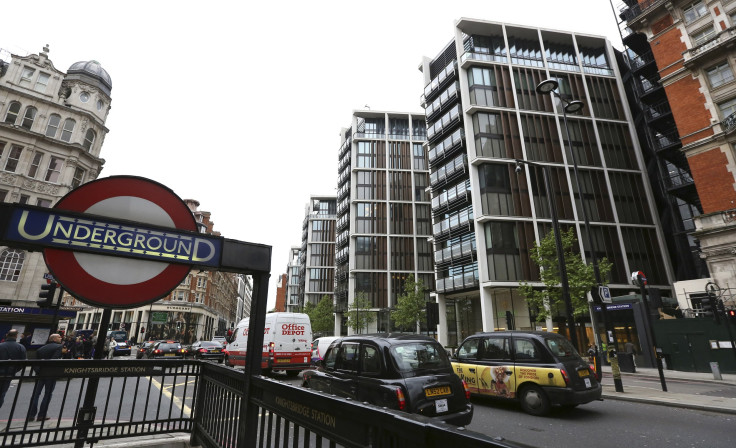Goldman Sachs Warns British Pound Could Crumble If UK Flees European Union

As the British consider ending their membership in the European Union, one of the world’s biggest investment banks warns a departure could cause the national currency to shed as much as a fifth of its value. The message from New York-based Goldman Sachs comes as U.K. leaders set a date for a national vote on whether the nation should remain in the 28-member alliance, which Britain joined in 1973.
Goldman Sachs analysts said in a note Thursday that a departure from the EU would “increase uncertainty, weigh on the U.K. outlook and raise concerns of foreign investors.” They suggested such a move could cause the pound to drop 15 percent to 20 percent, or to $1.15 -$1.20, Bloomberg reported. The last time the pound, which currently trades around $1.45, was listed at those values was in 1985.
Ultimately, the bank’s analysts said they believe the U.K. is unlikely to leave the EU, the Guardian reports. Goldman itself has funded a campaign to persuade citizens that Britain should remain a member, fearing an exit could compromise London’s position as a global financial hub.
The U.K. Independence Party has promised to hold a national vote by the end of 2017 on whether the nation should remain in the European Union. Conservative leaders, including Prime Minister David Cameron, are frustrated by increasing EU regulations, centralized legislation and membership fees, which they perceive as a hindrance to Britain’s ability to achieve its own full potential. A vote has not been scheduled, but it could happen as soon as this summer, according to BBC.
Goldman is not alone in sounding the warning bells. Last week, the governor of the Bank of England, Mark Carney, said a so-called Brexit could compromise the U.K.’s ability to lean on wealthy friends to cover a shortfall known as the current account deficit, which is the ratio of money coming into the country to money leaving the country. The nation’s current account deficit represents 3.7 percent of its gross domestic product, according to the Guardian.
© Copyright IBTimes 2024. All rights reserved.












